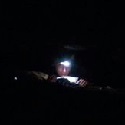Mola Yam posted:isn't there a line of thought that indigenous population collapse in the 1500s was due to european diseases running ahead of the colonists themselves? What folks have said already is correct, diseases absolutely outran actual colonial exploration and were definitely responsible for the relative ease with which European colonists were able to eventually to conquer what is now the United States. That said, by the time the Spanish landed in present-day Florida and moved up the coast, the Mississippian culture had been in a stark decline for more than a century. Individual groups still maintained the culture when contacted by Europeans but the extent to which they were part of a larger community and could call on help from said community to fight the Europeans was significantly reduced even before the Europeans introduced all manner of diseases. It was a one-two punch and the reasons for that initial decline are still hotly debated.
|
|
|
|
|

|
| # ? Jun 10, 2024 12:48 |
|
Azathoth posted:one of the more interesting historical what ifs is what would the US look like if Europeans hadn't arrived in the aftermath of the collapse of the Mississippian culture and instead found a flourishing empire in central North America probably the same poo poo that happened in mesomaerica i guess the big changes would be that native american culture is integrated into us culture instead of just being utterly destroyed
|
|
|
|
babypolis posted:i guess the big changes would be that native american culture is integrated into us culture instead of just being utterly destroyed tbf this is happening, just slowly because the cultures have to survive and rebuild before they can be particularly assertive. Like, Avatar wouldn't happen and we wouldn't be so aware of its flaws if people didn't see value in the idea of mutual cultural influence, we just have trouble looking past our own dumb ideas and cliches.
|
|
|
|
Mola Yam posted:isn't there a line of thought that indigenous population collapse in the 1500s was due to european diseases running ahead of the colonists themselves? Clearing the plains is the book you want if you want to go in depth into that. Also a good book in general.
|
|
|
|
IIRC there was a population collapse in the 1300s in the southwest so something must have happened to make them abandon a bunch of the bigger canyon dwellings.
|
|
|
|
Hodgepodge posted:thread favorite Debt: the First 5000 years has you covered: Just wanna say this is a hella good read, thanks thread
|
|
|
|
Radical 90s Wizard posted:Just wanna say this is a hella good read, thanks thread I think I learned about it from this thread as well, so just passing on one of the best books I've read on related subjects (including grad level stuff).
|
|
|
|
https://twitter.com/DorsaAmir/status/1454822232463593472
|
|
|
|
they make replicas of those for tourists one of the better korea souvenirs in my opinion
|
|
|
|
can confirm. have not played it though.
|
|
|
|
I have a dreidel from Mexico with a similar drinking game
|
|
|
|
https://twitter.com/heaberald/status/1455376032735838215?s=21
|
|
|
|
on the subject of medieval east asian drinking, I just rear essays in idleness again and this is one of my favourite passagesKenkō posted:There are many incomprehensible things in this world. one interesting thing is the "500 lifetimes without hands" which sounds like it's really bad but buddhism has an obsession with impossibly long lengths of time, and when you're talking about a conception of the afterlife which potentially encompasses things like quote:Sañjīva (等活), the "reviving" Naraka, has ground made of hot iron heated by an immense fire. Beings in this Naraka appear fully grown, already in a state of fear and misery. As soon as the being begins to fear being harmed by others, their fellows appear and attack each other with iron claws and hell guards appear and attack the being with fiery weapons. As soon as the being experiences an unconsciousness like death, they are suddenly restored to full health and the attacks begin again. Other tortures experienced in this Naraka include: having molten metal dropped upon them, being sliced into pieces, and suffering from the heat of the iron ground. Life in this Naraka is 1.62×1012 years long. It is said to be 1,000 yojanas beneath Jambudvīpa and 10,000 yojanas in each direction (a yojana being 7 miles, or 11 kilometres).
|
|
|
|
I went away with some friends over the weekend I haven't seen in ages because of The Event and it was basically two days of solid drinking and I still feel like poo poo and probably will do for another couple of days and that's basically been exactly my thought process 'It was wonderful and at one point I literally said "this is heaven, why can't life always be like this" but I'm never going to do it again but man I can't wait to do it again but I never feel as physically and emotionally and mentally wretched as I do after a bunch of drinking but it's worth it but it's not worth it and I never want to do it again, when are we doing it again? Great I can't wait'
|
|
|
|
|
yeah, I love it because it's so relatable not just in the overall sentiment but specifics like chatting a bunch of incomprehensible poo poo, falling off/out of things, or staggering home bursting for a piss and going somewhere you probably shouldn't because its the hour of the ox and there's no one around it's one of the reasons I love old books like this, you get stuff which is so utterly recognisable sandwiched between talking about what people say is the correct way to tie up a scroll or whatever or as the guy himself says quote:It is a most wonderful comfort to sit alone beneath a lamp, book spread before you, and commune with someone from the past whom you have never met.
|
|
|
|
XMNN posted:or as the guy himself says sounds like this dipshit has an unhealthy parasocial relationship with books
|
|
|
|
XMNN posted:
Ngl 500 years as a snake seems like a sweet deal.
|
|
|
|
Kenkō posted:In conclusion, getting blasted off sake is a land of contrasts.
|
|
|
|
Hodgepodge posted:I think I learned about it from this thread as well, so just passing on one of the best books I've read on related subjects (including grad level stuff). rip david graeber
|
|
|
|
Obviously USB ports aren't round but those breasts are clear evidence of anti-gravity.
|
|
|
|
can your wax tablet run crysis?
|
|
|
Real hurthling! posted:can your wax tablet run crysis? yeah crysis of the third century heyoooo
|
|
|
|
|
dang good one
|
|
|
|
that debt book seems pretty good, anyone got any other good history deep dive books?
|
|
|
|
Grevling posted:The book is a collaboration with the archeologist David Wengrow, here's a talk they did together. I think it relates to the book. towards the end of this talk they mention "Before Philosophy" by Henri Frankfort and others, about how modern intellectual people explain the universe as a static object separate from themselves, an "it," but in older times natural phenomena were experienced emotionally in a reciprocal relationship as "thou." i just got a copy the other day but so far it is very interesting.  also recommend "The Edge of Memory: Ancient Stories, Oral Tradition and the Post-Glacial World" by Patrick Nunn about how myths are used to remember geologic events from before writing was invented, got me interested in aboriginal australian stories that are really cool. He has a new one that's more about sea level rise but i haven't read it yet. https://www.youtube.com/watch?v=qWyydVH2pSA&t=757s
|
|
|
|
https://twitter.com/xujnx/status/1456489341618999320
|
|
|
|
hey any book recommendations on stone age technologies? looking online the one that comes up the most is Primitive Technology by John Plant (the youtube guy), which looks like more of a how-to guide. might still be fun but I was hoping for something a bit more historical
|
|
|
|
This looks like ancient version of the tortures from the show Silent Library.
|
|
|
|
Buck Turgidson posted:hey any book recommendations on stone age technologies? *Disclaimer: I'm a Prehistoric Archaeologist so i) probably more academic than you might want, ii) definitely out of date since it's been a while since I studied/worked on stone age stuff and iii)all my stone age books are in storage at my folks so you're stuck with my faulty memory... For historical stone age technologies you'll want to look into anthropological studies of areas like Australia. Stone age = level of technology not chronological period. Archaeological studies of prehistoric stone age technologies are really going to depend on what you are interested in - which part of the stone age (Palaeolithic through Neolithic is all stone age and the Palaeolithic is longer than everything else put together by quite a long margin), particular regional traditions, specific tool types across cultures, experimental reconstruction, etc. etc. I'm not aware of any general Big Book of Technology of the whole stone age but if there is one it will either be huge or very broad brush. Off the top of my head: this book Interpreting the Axe Trade is a very good one but is specifically about the production and trade of Neolithic polished stone axes in Britain which is probably more limited than you want. Be worth looking at the publications here: http://www.lithics.org/ and checking out all the other sites in their links and then the links from those. They are UK based but international in scope (current Editor is in Texas). Hell, be worth contacting them and asking if they'd suggest a reading list if you know vaguely what you want. They will be happy to share their obsessions if you just ask nicely. Pretty sure they have a facebook group where a not pushy question will probably get you lots of good current recommendations. In my experience contacting any decent archaeology department (unless they only do classical...) will get you a bunch of recommendations too, even if it's just the student reading lists. All of this is stone tools since they're what we mostly find until the Neolithic but there will also be stuff about the little we have found in wood, basketry and so forth in the Pal to Mesolithic. Sorry not to be more useful. E: This http://journals.ed.ac.uk/lithicstudies is worth checking out too. Its "a peer-reviewed open access journal which focuses on archaeological research into the manufacture and use of stone tools, as well as the origin and properties of the raw materials used in their production. The journal does not focus on any specific geographic region or time period." E2: This Making Silent Stones Speak might be more like what you want? Will be necessarily out of date since it's over 20 years old but it covers a global look at stone, wood and bone tools. Been years since I read it so can't remember how dense it is. EmptyVessel has issued a correction as of 16:14 on Nov 7, 2021 |
|
|
|
EmptyVessel posted:For historical stone age technologies you'll want to look into anthropological studies of areas like Australia. Thank you for the awesome post, I will definitely be checking out that journal you linked. Your suggestion re Australia is a good one and I feel like a dumbass for not thinking of it. I live in Australia and already have my eye on a book about aboriginal plant use which come to think of it will probably include use of plants in toolmaking, fibrecraft etc.
|
|
|
|
Buck Turgidson posted:Thank you for the awesome post, I will definitely be checking out that journal you linked. Glad to help. Yeah there should be plenty of good historical stuff you can find out about aboriginal technologies. Maybe even current? No idea how much the various mobs (my favourite anthropological group term ever) still preserve the old ways but some must, and they might even be willing to show a truly interested respectful observer how it's done. Back in the day one of the problems with rolling out the telegraph system was the ceramic insulators kept getting knicked to make tools out of. 
|
|
|
|
I feel like I'm in the minority here, but I find neolithic city-states to be vastly more interesting than hunter-gatherers.
|
|
|
|
They're both interesting? How do you feel about the large number of neolithic cultures that didn't go all proto-urban? Something that I was told when I first started studying prehistoric archaeology was, "there is always more, and it is always interesting". It's still true.
|
|
|
|
I'm intensely interested in hunter gatherer cities personally.
|
|
|
|
you'll have to find information on those yourself
|
|
|
|
what existed before we started settling down and organizing society is interesting enough but there's only so much information that can really be acquired about people that don't leave much in the archaeological record. the first cities are where it really starts to get interesting for me because we can actually get real insight into how they lived and what they were like
|
|
|
|
|
Please create a pre-neolithic history splinter thread if you want to discuss it more.
|
|
|
|
we could really do with an ancient history thread.
|
|
|
|

|
| # ? Jun 10, 2024 12:48 |
|
i am debating creating a history thread thread where we go back through the old history threads and look at the posts and see if we can get any understanding of the history of the time from the different history that they were look at then
|
|
|
|









































